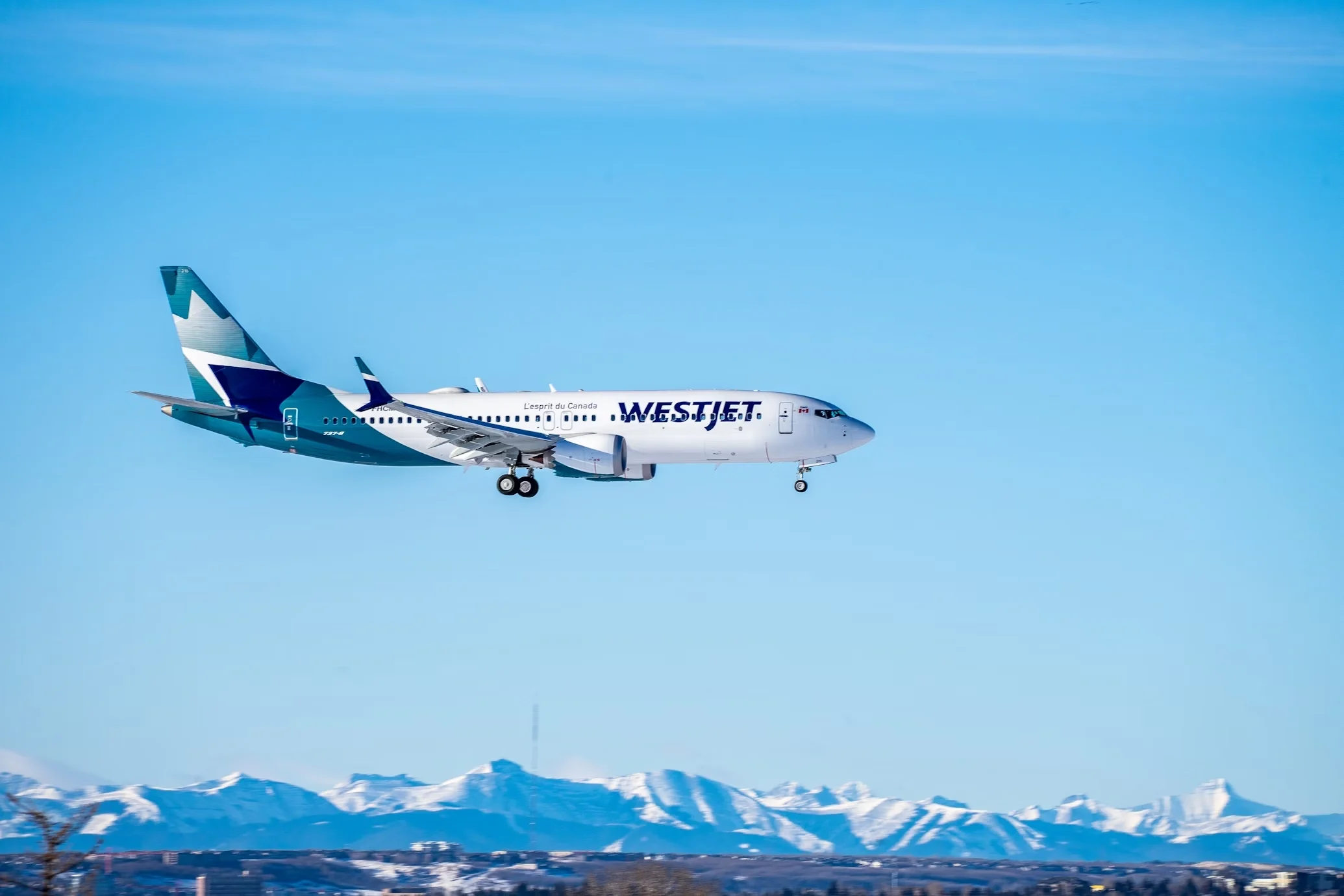In a new display of its drive to position itself as a leader in the autonomous vehicle revolution, Uber has taken a crucial step in its global strategy by launching its first commercial robotaxi service outside the United States. The ride-hailing giant, Uber, has formed a partnership with Chinese company WeRide, specializing in autonomous vehicles, to offer this innovative service in Abu Dhabi, the capital of the United Arab Emirates.
This Uber launch represents not only an international expansion but also the beginning of a new era for urban mobility, where driverless vehicles are becoming increasingly integrated into citizens' everyday lives.
Uber's decision to partner with WeRide, a Chinese startup, underscores its strategic focus on not developing its own autonomous vehicle technology but instead working with various market players to integrate the best available solutions. This partnership allows Uber to remain competitive in a highly dynamic sector while leveraging WeRide's advanced capabilities in the autonomous vehicle space.
Although the robotaxi market is still in its early stages of development, this move positions Uber at a key point to become the main connection platform for users seeking autonomous rides, regardless of which company has developed the underlying technology.
The robotaxi service in Abu Dhabi not only has implications for Uber but also marks a significant step forward for WeRide. Through this collaboration with Uber, the Chinese company gains the opportunity to showcase its autonomous vehicle technology in a real-world environment in a city with a strong focus on technological innovation.
As the world watches how these initial steps toward autonomous mobility unfold, the Uber-WeRide collaboration could become a model for future partnerships in this emerging field. Below, ITD Consulting explains all the details and implications of this partnership.

The Strategic Alliance Between Uber and WeRide
The agreement between Uber and WeRide was officially announced in September 2023 and has been a key step in Uber's expansion into the global autonomous mobility market. While Uber had previously made efforts to integrate autonomous vehicles into its platform in the United States, this launch in Abu Dhabi marks the first time Uber has launched a commercial robotaxi service outside its borders. For WeRide, this collaboration with Uber represents a golden opportunity to expand its international presence and demonstrate the viability of its technologies in a highly competitive market.
WeRide is a relatively young company, founded in 2017 in Guangzhou, China, which has made significant strides in developing autonomous vehicles capable of operating without human intervention. The company already holds permits to operate autonomous vehicles in China, Singapore, the United States, and, more recently, the UAE.
Through its partnership with Uber, WeRide will be able to implement its vehicles in Abu Dhabi, a city known for its openness to technological innovations, especially in the transportation sector. The partnership also allows Uber to tap into WeRide's experience and resources in autonomous vehicle development without having to invest in its own costly and technically challenging research and development efforts.
Uber's robotaxi service in Abu Dhabi will initially operate on specific routes, including Saadiyat Island, Yas Island, and Zayed International Airport. Users will be able to hail these vehicles through the Uber app, representing a seamless integration of autonomous mobility into Uber's existing infrastructure.
Although autonomous vehicles will initially feature safety drivers on board to ensure a safe experience for passengers, Uber plans to eliminate human drivers as the technology matures. The goal is to launch a fully autonomous Uber service by 2025, an ambitious but achievable target given the rapid evolution of autonomous driving technology.
La fase inicial y los planes a futuro
The launch of Uber’s robotaxi service in Abu Dhabi will take place in several phases. In the initial phase for Uber, WeRide’s autonomous vehicles will be equipped with a safety driver who will be responsible for overseeing the vehicle’s operation and ensuring that passengers and pedestrians are safe during the trips.
This gradual approach by Uber is common in autonomous vehicle rollouts, as companies and regulators prefer to ensure that the technology is completely reliable before large-scale adoption. Uber has emphasized that this initial approach is crucial to maintaining trust with users and local authorities, as autonomous vehicles are still in the development and testing phase.
Uber’s robotaxi service will be available in some of Abu Dhabi’s main tourist areas, which will not only ease the transition to the use of autonomous vehicles but also allow for an evaluation of public response in a controlled environment. The initial operating areas, such as Saadiyat Island and Yas Island, are key attractions for both tourists and residents, increasing the visibility of Uber’s new service.
The expansion of Uber’s operating routes is planned for the future, with the intention of covering more areas of the city as autonomous vehicles gain confidence and the ability to operate without human intervention.
As for the future, Uber and WeRide have plans to turn this pilot phase into a fully autonomous service by 2025. To achieve this goal, the companies will continue testing and fine-tuning their vehicles while ensuring that the legal and regulatory framework is favorable for the mass deployment of Uber’s robotaxis.
The transition to a fully autonomous service at Uber will not only depend on the evolution of the technology but also on public acceptance and local government policies. Challenges for Uber in terms of safety, infrastructure, and public acceptance will continue to be a crucial topic in the coming years, but the advancement toward a fully autonomous service is already underway.
Uber's Global Expansion and Its Partnerships
The launch in Abu Dhabi is just one part of Uber's global strategy to position itself as a leader in autonomous mobility. Although Uber had abandoned its own efforts to develop autonomous vehicles in 2020, the company has managed to form partnerships with a variety of autonomous vehicle companies to integrate this technology into its platform.
In fact, in recent months, Uber has signed agreements with companies such as Cruise, Waymo, Motional, Avride, and WeRide, demonstrating its commitment to consolidating itself as a single access point for users seeking to travel in autonomous vehicles.
Uber’s CEO, Dara Khosrowshahi, has emphasized that their strategy of partnering with advanced technology companies rather than developing their own internal technology has been successful. In his remarks during the earnings call at the end of October 2023, Khosrowshahi highlighted that Uber has managed to establish partnerships with over a dozen autonomous vehicle companies.

Furthermore, he has stated that these partnerships provide significant value for the deployment of autonomous mobility, placing Uber in a privileged position to benefit from the growth of the robotaxi market, which is expected to reach a value of $50 billion annually by 2030.
However, despite these advancements, Uber also faces strong competition in the autonomous vehicle sector. Companies like Waymo, the subsidiary of Alphabet Inc. (Google), are leading the development of autonomous robotaxis, while Tesla is also working on its own robotaxi model, the Cybercab.
Although Uber remains a key player in the shared mobility market, analysts have pointed out that its reliance on external partnerships could jeopardize its long-term position if competition in the autonomous vehicle market increases significantly.
The Competitive Risk and Presence of Waymo
The launch of Waymo into the robotaxi market has increased the pressure on Uber. Waymo, which started as a project within Google, has developed one of the most advanced fleets of autonomous vehicles in the world.
With an aggressive expansion approach, Waymo has launched its robotaxi service in several cities in the United States, including San Francisco and Phoenix, and is expanding its presence internationally. Recently, Waymo announced its intention to launch a robotaxi service in Miami, which has raised concerns about Uber's competitiveness in the autonomous mobility market.
Waymo's competition is not just limited to its ability to operate autonomous vehicles effectively, but also the possibility that the company could use its technological infrastructure to expand its own robotaxi business without relying on third-party platforms like Uber.
Additionally, Waymo is a direct competitor to Uber in some cities in the United States, where both companies are collaborating in the field of autonomous mobility. The possibility of Waymo operating independently in the future presents a challenge for Uber, which seeks to establish itself as the central platform for autonomous mobility, regardless of which company is behind the technology.
The Competition from Tesla and the Concept of the Cybercab
Tesla, under the leadership of Elon Musk, is also entering the robotaxi market with its autonomous vehicle model, the "Cybercab." The Cybercab is a vehicle specifically designed to operate as a robotaxi, without a steering wheel or pedals.
Using advanced computer vision technology and end-to-end machine learning, the Cybercab promises to be safer than human-driven vehicles, with Musk estimating that its safety will be between 10 and 20 times greater than that of human drivers.
Although the Cybercab won't be available until 2026 or 2027, the concept has already generated great expectations in the industry. If Tesla manages to launch an affordable and reliable autonomous vehicle, it could represent a significant threat to Uber, which depends on third-party vehicles to offer its robotaxi service.
While Uber has shown interest in integrating Tesla's technologies, the launch of a Cybercab could place Tesla in a dominant position in the robotaxi market, especially if the prices of its vehicles are lower than those of other alternatives.
The Role of WeRide and Its Expansion
WeRide, the Chinese company behind the launch of robotaxis in Abu Dhabi, has been a key partner in Uber's strategy to offer autonomous vehicles globally. Founded in 2017, WeRide has proven to be one of the most innovative companies in the field of autonomous driving. Its partnership with Uber marks an important milestone, as the Chinese company has big expansion plans in international markets.
WeRide has obtained permits to operate autonomous vehicles in several cities, including Dubai and Singapore, and is actively working to expand its presence in more markets. The company has also collaborated with other tech companies and automakers in China and the United States, allowing its technology to be tested and perfected in diverse conditions and environments.
With its expansion into Abu Dhabi, thanks to Uber, WeRide seeks to solidify its brand on a global scale, demonstrating the reliability of its technology in advanced markets like the United Arab Emirates.
The Future of Robotaxis: Perspectives and Challenges
Although the launch of robotaxis in Abu Dhabi is an important step for Uber and WeRide, the autonomous vehicle market remains uncertain and full of challenges. Despite advances in autonomous driving technology, companies still face significant technical, regulatory, and economic obstacles.
While the robotaxi market is expected to grow substantially in the coming years, the costs associated with developing autonomous vehicles and the infrastructure required to support them will continue to be a barrier to large-scale adoption.
One of the biggest challenges to overcome is the regulatory framework. Each country has a different approach to autonomous vehicles, and companies will need to navigate a maze of local regulations before they can launch commercial robotaxi services on a mass scale. Added to this are concerns about the safety of autonomous vehicles, which are still in testing phases in many markets, as well as the cost of the infrastructure needed to operate these services profitably.
Despite these challenges, the robotaxi market holds enormous potential. According to analyst estimates, this market could reach a value of $50 billion annually by 2030, representing a significant opportunity for companies like Uber, Waymo, and Tesla.
For Uber, this market not only represents an expansion of its mobility offering but also a way to strengthen its position as the leading global transportation platform. However, the competition will be fierce, and companies will need to heavily invest in technology and strategic partnerships to stay ahead.

The launch of Uber’s robotaxis in Abu Dhabi, in collaboration with WeRide, marks a milestone in the evolution of autonomous mobility. Although the autonomous vehicle market is still in its early stages, the introduction of this service marks the beginning of a radical shift in the way we move through cities. While Uber remains a key player in urban mobility, the company’s future in the robotaxi sector will depend on its ability to stay competitive against rivals like Waymo and Tesla.
As autonomous vehicle technology advances, we are likely to see more alliances between technology companies and transportation platforms like Uber. Cooperation among different companies could accelerate the adoption of robotaxis, allowing for greater integration of these vehicles into existing urban infrastructure. However, technical and regulatory challenges will remain a critical issue, and companies will need to navigate a complex environment to achieve long-term success.
Competition in the robotaxi market is fierce, and as more players join the race, it will be crucial for Uber to differentiate itself not only through technology but also through service quality and user experience. If Uber manages to consolidate itself as the leading platform for robotaxi requests, it will be able to maintain its relevance in a rapidly transforming market.
The future of robotaxis is filled with uncertainties, but the opportunities are equally vast. Companies that manage to overcome technological, economic, and regulatory obstacles will lead the way toward a future where autonomous vehicles are an integral part of our daily lives. The launch in Abu Dhabi is just the beginning of what promises to be a decade full of advances and challenges in the world of autonomous mobility.
If you want to know more about the robotaxi trend worldwide, with Uber taking the lead, contact us at [email protected]. We have a team of technology experts ready to offer you the best advice in modernizing your operations.





